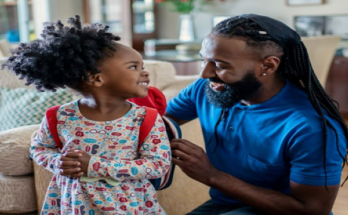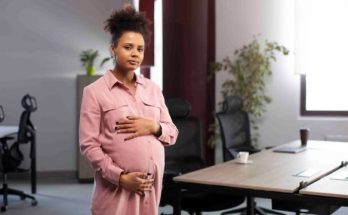With October marking Pregnancy & Infant Loss Awareness Month and November dedicated to Premature Birth Awareness, Forever Hope encourages open conversations around maternal and emotional health. I’m honoured to have been invited as a guest speaker at two private hospitals this November, where I’ll continue sharing this message of resilience.
Looking ahead, my dream is to create a non-profit supporting mothers and partners through pregnancy loss, high-risk pregnancies, and NICU journeys, offering emotional support, education, and a reminder that no one has to walk this path alone.
1. What inspired you to write Forever Hope, and why now?
For years, I thought about writing a book about our road to parenthood, but I never felt emotionally ready until November last year. When I finally began, it stemmed from two things: a deep personal need to share our story so that other parents wouldn’t feel alone, and a conversation with a hospital psychologist who mentioned the limited support available for families like ours. She encouraged me that one day I might help fill that gap. Forever Hope grew from that longing and encouragement; it became the voice I wish I had during my hardest days, a message of strength, faith, and hope when everything feels lost.
2. Can you take us back to the moment you knew your story needed to be shared publicly?
That realization came gradually, but there was one defining moment. During one of my hospital stays, I spoke with a psychologist who said, “There are so few voices for families like yours.” That conversation stayed with me for years. In my journey, I also began connecting with other women and realised how many had silently faced similar heartbreaks.
The more I spoke with them, the more I saw that my story was not an isolated one; it was shared by countless others who felt not just unseen and unheard, but often ashamed or judged. I knew then that what we had gone through couldn’t just end with our pain; it needed to become something meaningful for others. Sharing our story publicly is both terrifying and freeing, but it felt like my heart’s way of turning pain into purpose.
3. How did writing your memoir help you process your journey of loss and resilience?
Writing was both one of the hardest and most healing things I’ve ever done. There were days when the memories felt too raw, and I’d step away from my computer in tears. However, the more I wrote, the more I understood that this story wasn’t just mine; it belonged to every parent who has loved and lost, and still remembers.
Giving voice to my emotions helped me make peace with the silence I had carried for so long. It became a way to honour our babies, our struggles, and our survival. Through the process, I discovered how resilience quietly rebuilds you, one page at a time.
4. What do you wish more people understood about pregnancy loss and high-risk pregnancies?
I wish more people understood that pregnancy loss is not something a mother should ever feel ashamed of, and that she should never shy away from speaking about what she’s been through. It is not her fault. Too often, mothers carry silent guilt and grief when what they truly need is understanding. Not every pregnancy loss brings physical pain, but all leave emotional echoes in the heart, in the quiet, and in the dates etched into memory.
What we need most is compassion, not silence. Small gestures like listening, checking in, and acknowledging the baby who was loved can make an enormous difference. More empathy and openness can help break the stigma and remind grieving parents that their pain is valid and their love everlasting.
For those of us who’ve faced high-risk pregnancies, the experience can look “normal” from the outside, but mentally it’s an entirely different story. We live in constant fear, sometimes even dreading simple things like bathroom breaks or lying down the wrong way.
You hold your breath through everyday moments, terrified that one small move could change everything. Bed rest and isolation become part of your routine, and being alone with your thoughts can take a heavy toll.
5. How did your autoimmune condition impact your pregnancies and emotional well-being?
My Antiphospholipid Syndrome (APS) is definitely, to me, a silent killer. I had no idea I had it until my last pregnancy with my son, when we finally confirmed the diagnosis. It’s in your body without you knowing, and it gives you no warning signs, and you feel completely normal. For years, it was misdiagnosed, and that lack of awareness cost me dearly.
My pregnancies ended in miscarriages because APS caused blood clots and made my body see each pregnancy as a threat that needed to be expelled. Living with Antiphospholipid Syndrome meant my pregnancy was a high-risk one from the start, requiring extra medication, constant monitoring, and endless courage.
Each scan was filled with anxiety and hope battling fear. Emotionally, it was exhausting, but it also taught me to advocate for myself and to never ignore my instincts. Awareness of APS is so important because early diagnosis can save lives and pregnancies. Through this journey, I learned that even when your body feels like it’s failing you, your spirit can still fight for love.
6. What was the most challenging part of your NICU journey as a mother?
The hardest part was walking out of the hospital without my baby in my arms. That separation shattered me in ways I can hardly describe. I had prepared a room filled with love and hope, only to return to its silence. The NICU became both a place of fear and fragile gratitude with machines keeping him alive, nurses offering comfort, and me learning to surrender control.
Seeing my son so tiny, surrounded by wires and monitors, broke me. I couldn’t hold him, couldn’t soothe him. I could only watch and wait. However, his strength gave me mine. Every small improvement felt like a miracle. The NICU taught me what unconditional love truly means: trusting, waiting, and believing, even when every day feels uncertain.
7. How did you find strength during the most uncertain moments of your pregnancy and after birth?
My strength during pregnancy came from faith, my husband’s unwavering support, and a deep inner promise that I wouldn’t give up on our dream of becoming parents. My husband was my anchor as he soothed me, gave me my medication (injections to the stomach every night), and took over things I couldn’t do when my body needed rest.
Together, we faced every fear with quiet determination and love. After our son’s birth, everything changed. I had an emergency C-section during the COVID pandemic and couldn’t see my husband afterward. I was alone in my hospital room, without him or my newborn, who had been taken straight to the NICU. I never even got to hold him at birth.
Those moments were incredibly hard, but my husband and family called and messaged as often as they could, reminding me that I wasn’t alone. Their love gave me strength when my heart felt empty. Over time, that strength transformed into gratitude, celebrating every breath our son took, every tiny milestone. Strength, I’ve learned, doesn’t always roar; sometimes, it’s just whispering to yourself, “Keep going,” one heartbeat at a time.
8. In what ways has your son’s birth changed your perspective on motherhood and hope?
My son completely reshaped how I understand motherhood. He showed me that love isn’t born from perfection, it’s forged in resilience. His fight for life reminded me how sacred each moment truly is. I no longer see motherhood as a straight path, but as a mosaic of loss, joy, fear, patience, and grace. Hope, to me, isn’t soft or naïve anymore … it’s fierce.
It’s waking up each day and choosing to believe in light, even when everything feels uncertain. His prematurity brought complications that made me feel both fiercely protective and deeply afraid. I’ve learned just how fragile motherhood can be and how strong love makes us. That bond between a mother and her child is unlike anything else: raw, tender, and unshakably precious.
9. What kind of support do families facing similar challenges need most, in your experience?
Families walking through loss and uncertainty need both emotional and practical support. Compassion truly is everything, as sometimes, just having someone sit beside you in silence means more than words ever could. They need clear medical guidance, emotional counselling, and safe spaces where they can share openly without fear of judgment or shame.
Partners, too, deserve recognition for their pain. Their grief often goes unseen, but it’s just as real and deep. I’ve learned that community and connection can be lifelines during these times. The smallest act of kindness, like a message, a meal, a quiet check-in, can remind a family that they are seen, loved, and not walking this road alone.
In the beginning, some families may need space, and that’s okay. However, gentle reminders that they’re not forgotten can make all the difference. Support doesn’t have to be loud or grand; it just needs to be steady and filled with heart.
10. Tell us more about your vision for a non-profit supporting women through these journeys.
My dream is to create a non-profit that offers emotional support, resources, and awareness for families facing pregnancy loss, autoimmune conditions, high-risk pregnancies, and NICU journeys. I want it to be a true place of connection, where parents can share, heal, and find both practical help and hope. Many families are left without guidance after diagnosis or loss, and I want to change that.
I want those who come to my NPO to leave feeling that there is hope and that they are not alone. I want them to heal, and then, when they are ready, to come back and be part of a community that uses their stories and healing to help others in their darkest times. Together, we can become the voices in the silence and the light others need in their dark days. Ultimately, it’s about turning my pain into purpose and ensuring that no one has to face these journeys feeling unseen or forgotten.
11. Why do you think awareness months like Pregnancy Loss Awareness and Premature Birth Awareness are so important?
These awareness months give visibility to experiences that are often hidden in silence. They remind families that their grief, strength, and stories matter. Awareness sparks understanding, and understanding fosters compassion. When we talk openly about miscarriage, premature birth, or conditions like APS, we empower others to seek help sooner and to know they’re not alone.
It’s not just about statistics or ribbons; it’s about the lives and love behind every story. Every shared experience becomes a light for someone still navigating their darkness.
12. If readers take one message from Forever Hope, what do you hope it will be?
I hope they remember that even in the darkest chapters, hope is never lost. Forever Hope is a reminder that our stories, no matter how painful, can still carry light. I want readers to know they are not alone, that their feelings are valid, and that it’s okay to fall apart before finding strength again.
Healing isn’t about forgetting; it’s about learning to live alongside what you’ve lost and still finding joy. Above all, I want them to believe that their journey, too, can become someone else’s hope one day.
To connect or learn more, visit foreverhopememoir.wixsite.com/forever-hope. You can also get your copy of Forever Hope on Amazon: https://www.amazon.com/dp/1037099869




